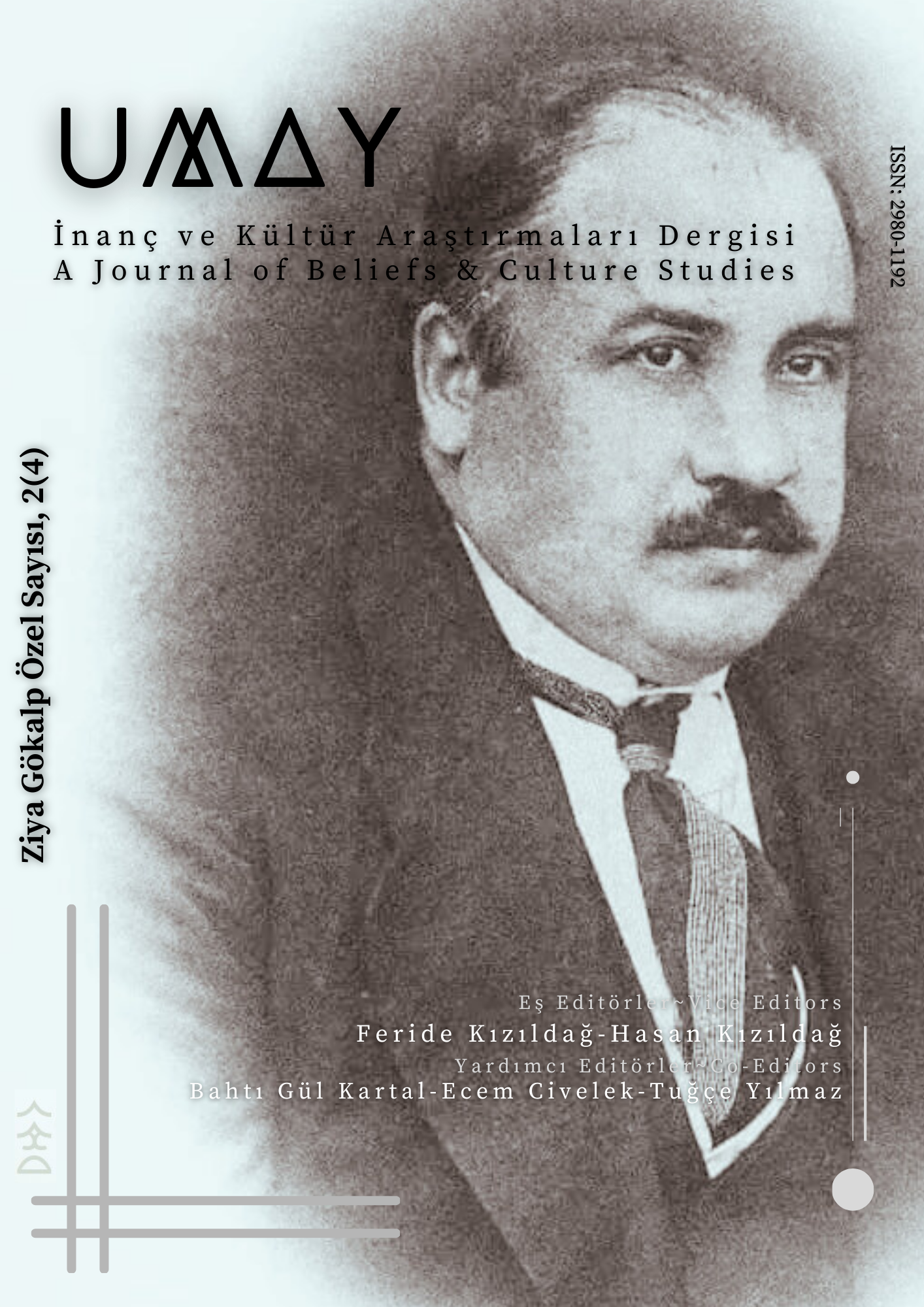Author :
Abstract
Bu makalede Ziya Gökalp’in hilafet kurumu ile ilgili görüşleri incelenecektir. Hilâfet kelimesinin sözlük anlamı, “birinin yerine geçmek, birinin ardından gelmek / gitmek, vekalet veya temsil etmek” gibi anlamlara gelmektedir. Bir terim olarak ise İslam devletlerinde Hz. Peygamber'den sonraki devlet başkanlığı kurumunu ifade eder ve devlet başkanı için kullanılır. Gökalp’in metinlerinde hilâfet, dinin siyasî işlevleri içerisinde ele alınabilecek bir konudur. Gökalp’in metinlerinde hilâfet, Osmanlı Devleti ve İslam alemi içindeki mevcut durumu, yerine getirdiği işlevi, uluslararası rekabet ortamındaki konumu ve nasıl bir değişim içinde yer aldığı ayrıntılı bir şekilde analiz edilmiştir. Konuya geniş yer ayıran ve sistematik açıdan sorunu ele alan Gökalp hem kültürel ve politik hem de dinî ve tarihî boyutları ile çözümler. Gökalp, hilâfeti üç açıdan tartıştığı görülür. Birincisi, uluslararası alanda Müslüman milletlerin siyasî ve kültürel birliği, ikincisi, uluslararası ilişkilerde hilafetin konumu, üçüncüsü de iç politikada laikleşmenin bir tezahürü olan dinden uzaklaşmayı ifade eden sosyal pratikler, din ve devletin ayrıştırılması sürecindeki rolüdür.
Keywords
Abstract
This article will examine Ziya Gökalp’s views on the institution of the caliphate. The literal meaning of the word caliphate is “to take someone’s place, to come/go after someone, to represent or represent”. As a term, it refers to the institution of the presidency in Islamic states after the Prophet Muhammad and is used for the head of state. In Gökalp’s texts, the caliphate is a subject that can be addressed within the political functions of religion. In Gökalp’s texts, the caliphate, its current situation within the Ottoman Empire and the Islamic world, its function, its position in the international competitive environment and the changes it has undergone have been analyzed in detail. Devoting extensive space to the subject and systematically addressing the issue, Gökalp analyzes it with both cultural and political as well as religious and historical dimensions. Gökalp discusses the caliphate from three perspectives. The first is the political and cultural unity of Muslim nations in the international arena, the second is the position of the caliphate in international relations, and the third is the social practices that express the alienation from religion, which is a manifestation of secularization in domestic politics, and its role in the process of separation of religion and state.





